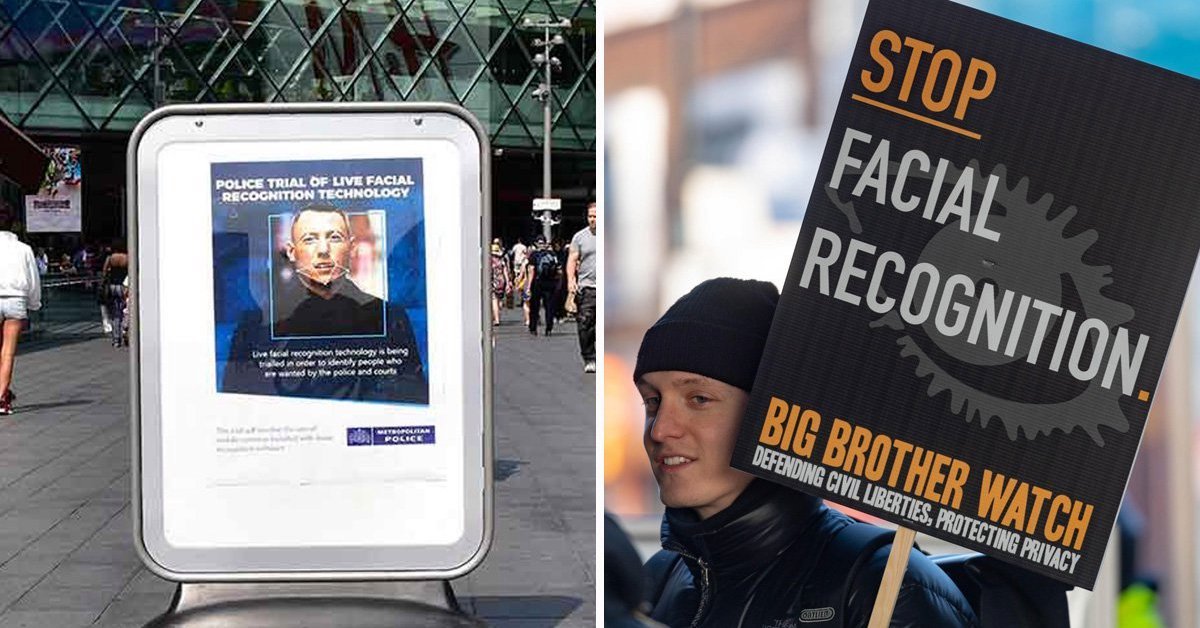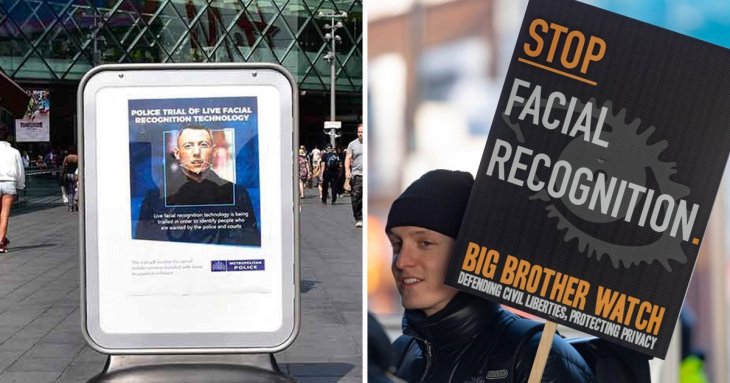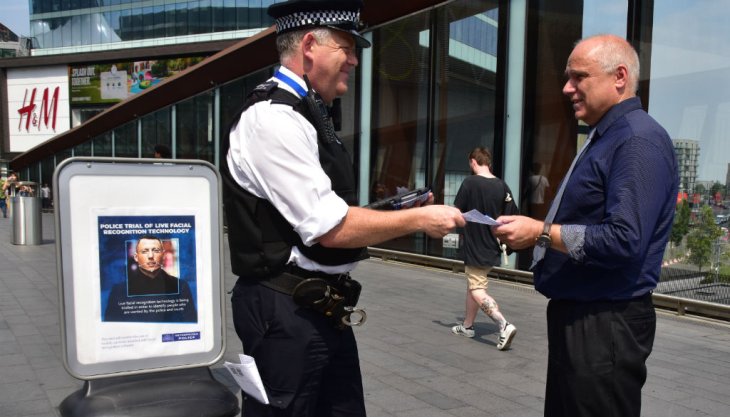The Future Of Facial Recognition Technology Depends On This Case's Judgement
Maya Bhagat - Jun 04, 2019

According to Bridges, the police in South Wales used the facial recognition technology to him more than 2 times without his consent. If he wins the case, the use of facial recognition technology in the future may be different.
- Indian Police To Install AI Cameras To Prevent Crime Of Rape
- Wearing This T-Shirt And You Are "Invisible" To Every Facial Recognition Camera
- Indian Police Used Facial Recognition To Arrest Over 1,100 People In A Riot Last Month
What is the case?
It is the first time that UK police defended how they have used the facial recognition technology in court.
The court is raised by Ed Bridges – an office worker in Britain. He said that police in South Wales used the facial recognition technology to him more than 2 times without his consent. In his opinion, his human right was contravened, which will be shown in the court lasting 3 days in Cardiff on May 21. In case Bridges wins the case, the use of facial recognition technology in the future may be different.

What happened?
According to Bridges, his first facial scan took place in Cardiff at the time of his shopping in the last month of 2017.
Sharing with BBC News, he said while leaving the office to go to buy something for Christmas, he saw a police van. When he saw the words ‘automatic facial recognition’ on the car, he knew he had already scanned.
He claimed that his privacy was violated seriously.
Another scan is said to happen when he took part in a peaceful campaign which is about protesting arms.

Is there a precedent?
Gaining support from Liberty- a UK organization that aims to protect human rights, Bridges opened a crowdfunding campaign in a bid to sue the UK police.
In a press release, Liberty lawyer named Megan Goulding stated:

In the UK, it is the first time for a case against the use of facial recognition technology. Therefore, if Bridges win the case, it may change the future of this technology. This precedent will affect law enforcement of facial recognition technology not only in the UK but also over the world.
Featured Stories

Features - Jan 29, 2026
Permanently Deleting Your Instagram Account: A Complete Step-by-Step Tutorial

Features - Jul 01, 2025
What Are The Fastest Passenger Vehicles Ever Created?

Features - Jun 25, 2025
Japan Hydrogen Breakthrough: Scientists Crack the Clean Energy Code with...

ICT News - Jun 25, 2025
AI Intimidation Tactics: CEOs Turn Flawed Technology Into Employee Fear Machine

Review - Jun 25, 2025
Windows 11 Problems: Is Microsoft's "Best" OS Actually Getting Worse?

Features - Jun 22, 2025
Telegram Founder Pavel Durov Plans to Split $14 Billion Fortune Among 106 Children

ICT News - Jun 22, 2025
Neuralink Telepathy Chip Enables Quadriplegic Rob Greiner to Control Games with...

Features - Jun 21, 2025
This Over $100 Bottle Has Nothing But Fresh Air Inside

Features - Jun 18, 2025
Best Mobile VPN Apps for Gaming 2025: Complete Guide

Features - Jun 18, 2025
A Math Formula Tells Us How Long Everything Will Live
Read more

ICT News- Feb 18, 2026
Google's Project Toscana: Elevating Pixel Face Unlock to Rival Apple's Face ID
As the smartphone landscape evolves, Google's push toward superior face unlock technology underscores its ambition to close the gap with Apple in user security and convenience.

Mobile- Feb 16, 2026
Xiaomi Launches Affordable Tracker to Compete with Apple's AirTag
For users tired of ecosystem lock-in or high prices, the Xiaomi Tag represents a compelling, no-frills option that delivers core functionality at a fraction of the cost.

Mobile- Feb 17, 2026
Anticipating the Samsung Galaxy S26 and S26+: Key Rumors and Specs
The Samsung Galaxy S26 series is on the horizon, sparking excitement among tech enthusiasts.
Comments
Sort by Newest | Popular